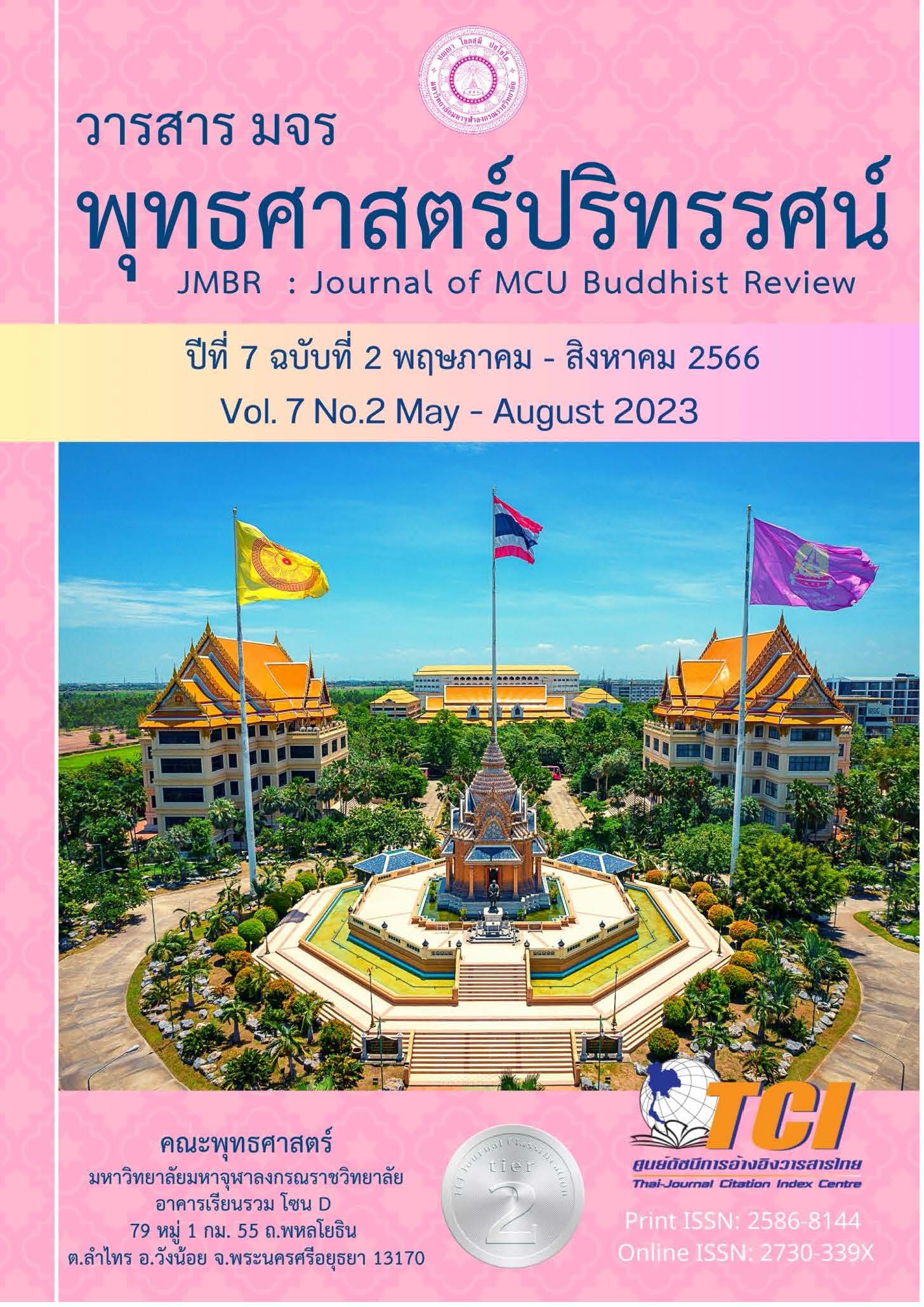Music Intervention Therapy to Improve Healthy Mind
Main Article Content
บทคัดย่อ
In this paper, the focus is on the potential benefits of Music Intervention Therapy for improving mental health. The text begins by highlighting the prevalence of depression and its impact on individuals and society. It then moves on to discuss the potential of Music Intervention Therapy in treating depression and anxiety. Music therapy is cited as a subfield of contemporary science intervention that has demonstrated notable advantages. Listening to music has been shown to enhance the brain's capacity for maintaining focus on the subject matter, and it is employed to handle psychological issues. Meditation is another intervention that has been shown to increase bodily awareness and effectively treat people with severe depression.
Overall, the text emphasizes the importance of promoting mental well-being and the potential impact of Music Intervention Therapy in helping individuals manage their mental health and lead happier, more fulfilling lives.
Article Details

อนุญาตภายใต้เงื่อนไข Creative Commons Attribution-NonCommercial-NoDerivatives 4.0 International License.
- บทความที่ได้รับการตีพิมพ์เป็นลิขสิทธิ์ของวารสาร มจร พุทธศาสตร์ปริทรรศน์
- ข้อความใดๆ ที่ปรากฎในบทความที่ได้รับการตีพิมพ์ในวารสาร ถือเป็นความรับผิดชอบของผู้เขียนบทความ และข้อคิดเห็นนั้นไม่ถือว่าเป็นทัศนะและความรับผิดชอบของกองบรรณาธิการวารสาร มจร พุทธศาสตร์ปริทรรศน์
เอกสารอ้างอิง
American Music Therapy Association. (2005). What is music therapy?. Silver Spring, MD: American Music Therapy Association. http://www.musictherapy.org/about/quotes/
Cabanac, A. et al. (2013). Music and academic performance. Behavioural Brain Research. 256(1), 257-260
Goya, A, Yadav, G. & Yadav, S. (2012). Music Therapy: A Useful Therapeutic Tool for Health.
Physical and Mental Growth. International Journal of Music Therapy. 2(1), 1-2.
Blair, D. (1983). The Basis of Music Therapy. British Journal of Music Therapy. 14(3), 1-15.
Broton, M. Koger, S.M., & Pickett-Copper, P. (1997). Music and dementias: A review of literature. J Music Ther. 34(34), 204-245.
Cassidy, MD. & Cassidy, JE. (1994). Psychiatric music therapy assessment and treatment in clinical training facilities with adults, adolescents and children. Journal of Music Therapy. 31(5), 2-30.
Cevasco, AM., & Grant, RE. (2005). Effect of the Pacifier Activated Lullaby on weight gain of premature Infants. Journal of Music Therapy. 41(2),123-129.
Sridharan, D. et al. (2007). Neural Dynamics of Event Segmentation in Music: Converging Evidence for Dissociable Ventral and Dorsal Networks. Neuron. 55(3), 521-532.
Dobrzyńska, E. et al. (2006). Music Therapy - History, definitions and application. Archives of Psychiatry and Psychotherapy. 8(1), 47-52.
Desbordes, G., et al. (2012). Effects of mindful-attention and compassion meditation training on amygdala response to emotional stimuli in an ordinary, non-meditative state. Frontiers in human neuroscience. N.P.: n.p.
Greenwood, S. et al. (2017). Demographics of Social Media Users in 2016. N.P.: n.p.
Herman, H., Patel, V. & Kieling, C. (2022). Time for united action on depression: a Lancet-World Psychiatric Association Commission. The Lancet Commissions. 399(10328), 957-1022.
Koehler, Nichole, S. & Parrell, Rose, B., (2020). The impact of social media on mental health: A mixed methods research of service providers’ awareness. Master’s thesis, Graduate School: California State University San Bernardino Scholar Works.
Andreas, M. & Forstmeier, S. (2011). Healthy brain aging: The new concept of motivational reserve. Psychiatrist. 35(5), 175-177.
Phra Somdet Buddhakosajarn (Phra Brahmagunabhorn P.A. Payutto). (2016). Buddha Dhamma Extended Version. Bangkok: Thailand.
Witte, M. et al. (2020). Effects of music interventions on stress-related outcomes: a systematic review and two metaanalyses. Health Psychology Review. 14(2), 1-10.
Thorsen, S. et al. (2013). The predictive value of mental health for long-term sickness absence: the Major Depression Inventory (MDI) and the Mental Health Inventory (MHI-5) compared. BMC Medical Research Methodology. 13(115), 1-7.
Whipple, J. (2004). Music in Intervention for children and adolescents with Autism: A Meta-Analysis. Journal of Music Therapy. 41(2), 123-139.
World Health Organization. (2015). Depression and Other Common Mental Disorders: Global Health Estimates. N.P.: n.p.


